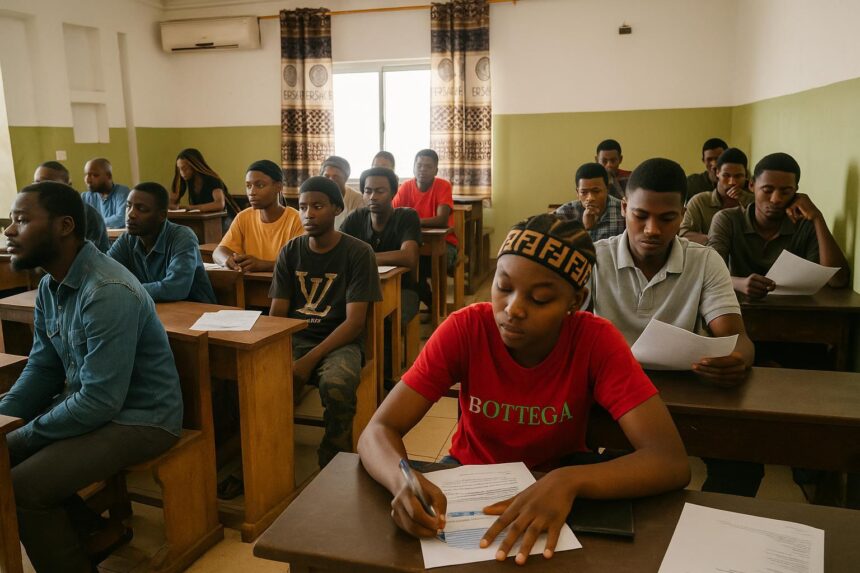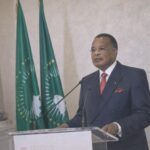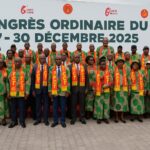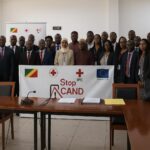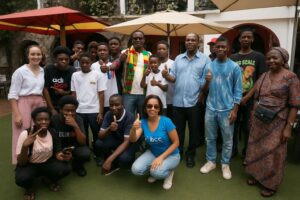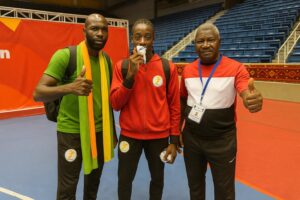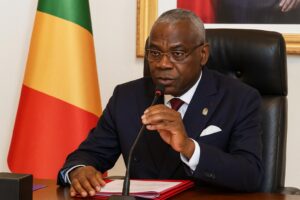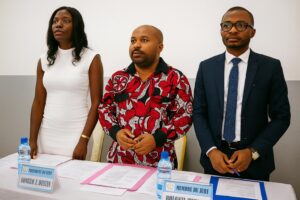25 New Graduates Seize Rare Opportunity
Twenty-five freshly minted baccalaureate holders filed into a small lecture room in Brazzaville’s ninth district on 25 August, brimming with anticipation. For the coming weeks they will study English free of charge, a privilege still uncommon in Congo-Brazzaville’s public education landscape.
The programme, scheduled to run until late September, has been launched within the Foreign Languages Training Center, known locally as FLTC, in Djiri. Organisers say the calendar could stretch into November if student motivation and logistical support remain strong.
Behind the Initiative: Parfait Iloki
Driving the initiative is Parfait Iloki, Permanent Secretary for Communication and New Information Technologies of the Congolese Labour Party. Known for promoting digital literacy, he has now turned his attention to language skills he believes are essential for youth competing on regional and global job markets.
“English opens doors that even the brightest academic record cannot,” he told reporters, citing growing foreign investment and cross-border projects in Central Africa. By underwriting tuition, course materials and internet access, Iloki hopes to demonstrate that political engagement can translate into tangible benefits for households.
Inside Brazzaville’s Foreign Languages Training Center
The FLTC facility, inaugurated earlier this year, occupies a refurbished municipal building near the lively Talangaï market. Its modest classrooms are equipped with projectors, whiteboards and a small computer lab. Lecturers, recruited from local universities, blend conversational drills with multimedia content to accelerate comprehension.
Coordinator Roland Ondzelo Ngoua described the atmosphere as “energetic yet disciplined”. He noted that many trainees had only encountered English through music or social media before, making the classroom their first structured exposure. Daily sessions run three hours, balanced between grammar, listening exercises and role-play debates.
Course Content and Certification Goals
The syllabus targets practical proficiency at the A2 to B1 levels of the Common European Framework. Students practice situational vocabulary linked to tourism, customer service and entrepreneurship, sectors identified by Congo’s Ministry of Technical Education as growth priorities. Guest speakers from hotels and call centres supplement the curriculum.
On completion participants will sit a centre-designed assessment combining oral interviews and a written test. Successful candidates earn a certificate endorsed by FLTC and Iloki’s office. While the credential is not an international exam, local employers increasingly request proof of functional English for entry-level positions.
Youth Voices on Ambition and Job Prospects
Brice, an economics graduate from the Madibou district, said he hopes the course will help him secure an internship with a multinational bank expanding in Brazzaville. “They always ask for English,” he explained. “Now I can answer without switching to French.” His words drew nods across the room.
For Eliane, who passed her baccalaureate in literature, the priority is teaching abroad. She believes improved English will make her competitive for cultural exchange programmes backed by the United States Embassy. “The scholarship forms are online and everything is in English,” she smiled, flicking through her new workbook.
Potential Extension and Future Partnerships
Ondzelo Ngoua hinted that sustaining the project beyond September depends on fresh sponsorship. Talks are reportedly under way with private telecom operators eager to showcase corporate social responsibility. If successful, the centre could double its intake and introduce evening classes for working adults unable to attend daytime sessions.
Observers note the timing aligns with government objectives to raise English competency as Congo-Brazzaville eyes closer ties with the Commonwealth. In 2022, official delegations attended workshops on language policy in Kigali, signalling interest in multilingual diplomacy. The FLTC pilot therefore operates in harmony with national strategic discussions.
Local media outlets such as Agence Congolaise d’Information and Radio Congo have followed the classes, highlighting student testimonies during their evening bulletins. Coverage, though brief, underscores a broader narrative of skills empowerment and positions the organisers as partners in government efforts rather than political rivals.
Analyst André Mayela from the University of Marien-Ngouabi believes momentum could grow. “If employers start rewarding English certificates, demand will skyrocket,” he said by telephone. He suggested universities might integrate similar modules or offer credit transfers, thereby creating a pipeline from secondary school to higher education.
While resources remain modest, the centre’s pilot is being watched closely by communities outside the capital. Delegations from Pointe-Noire and Dolisie have requested blueprints for replication. Iloki’s office confirmed it is open to sharing teaching materials, provided local partners handle venue costs and recruit qualified staff.
Certificates as Stepping Stones, Not Endpoints
Educators stress that a month-long immersion cannot produce fluency, but it can ignite self-study habits. Graduates will receive guidance on affordable online platforms for continued practice, reinforcing the idea that certificates mark beginnings. Follow-up surveys are planned to track how the cohort applies English in real-world settings.
As sunset coloured the courtyard on day one, students lingered to exchange phrases they had just mastered, laughter peppering the air. Their enthusiasm, organisers insisted, is evidence that modest interventions can kindle outsized ambition. Whether the course extends or not, the first lesson seems already learned.

